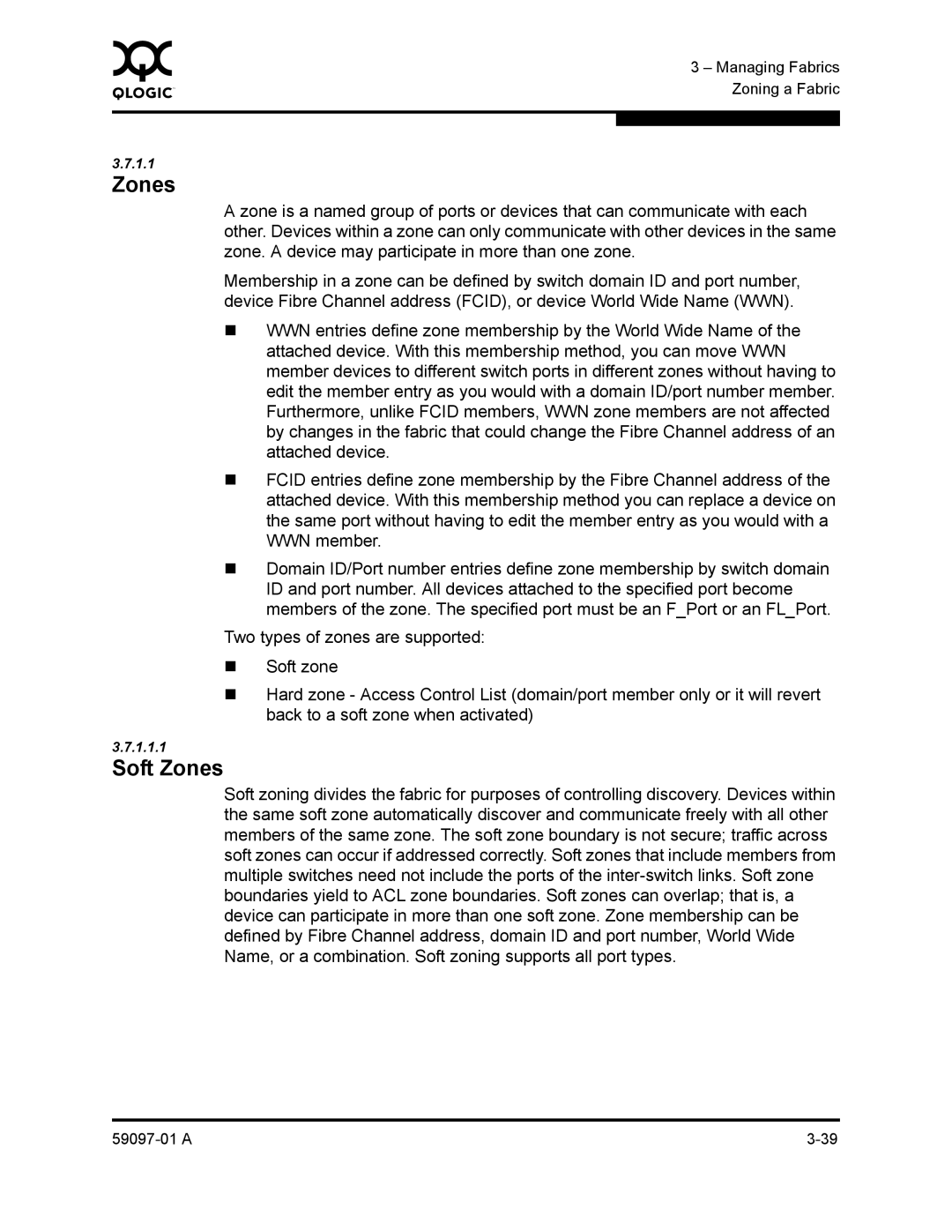0 |
| 3 – Managing Fabrics |
|
| |
|
| Zoning a Fabric |
|
|
|
3.7.1.1 |
|
|
|
| |
Zones | A zone is a named group of ports or devices that can communicate with each | |
| ||
| other. Devices within a zone can only communicate with other devices in the same | |
| zone. A device may participate in more than one zone. | |
| Membership in a zone can be defined by switch domain ID and port number, | |
| device Fibre Channel address (FCID), or device World Wide Name (WWN). | |
| WWN entries define zone membership by the World Wide Name of the | |
| attached device. With this membership method, you can move WWN | |
| member devices to different switch ports in different zones without having to | |
| edit the member entry as you would with a domain ID/port number member. | |
| Furthermore, unlike FCID members, WWN zone members are not affected | |
| by changes in the fabric that could change the Fibre Channel address of an | |
| attached device. | |
| FCID entries define zone membership by the Fibre Channel address of the | |
| attached device. With this membership method you can replace a device on | |
| the same port without having to edit the member entry as you would with a | |
| WWN member. | |
| Domain ID/Port number entries define zone membership by switch domain | |
| ID and port number. All devices attached to the specified port become | |
| members of the zone. The specified port must be an F_Port or an FL_Port. | |
| Two types of zones are supported: | |
| Soft zone | |
| Hard zone - Access Control List (domain/port member only or it will revert | |
| back to a soft zone when activated) | |
3.7.1.1.1
Soft Zones
Soft zoning divides the fabric for purposes of controlling discovery. Devices within the same soft zone automatically discover and communicate freely with all other members of the same zone. The soft zone boundary is not secure; traffic across soft zones can occur if addressed correctly. Soft zones that include members from multiple switches need not include the ports of the
